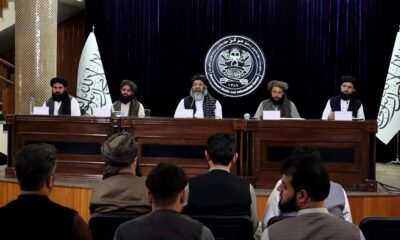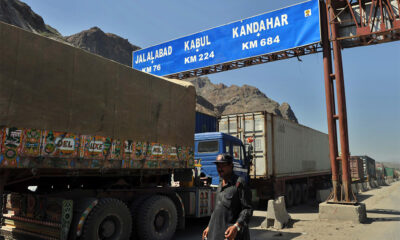Latest News
Helmand farmers concerned about lack of water
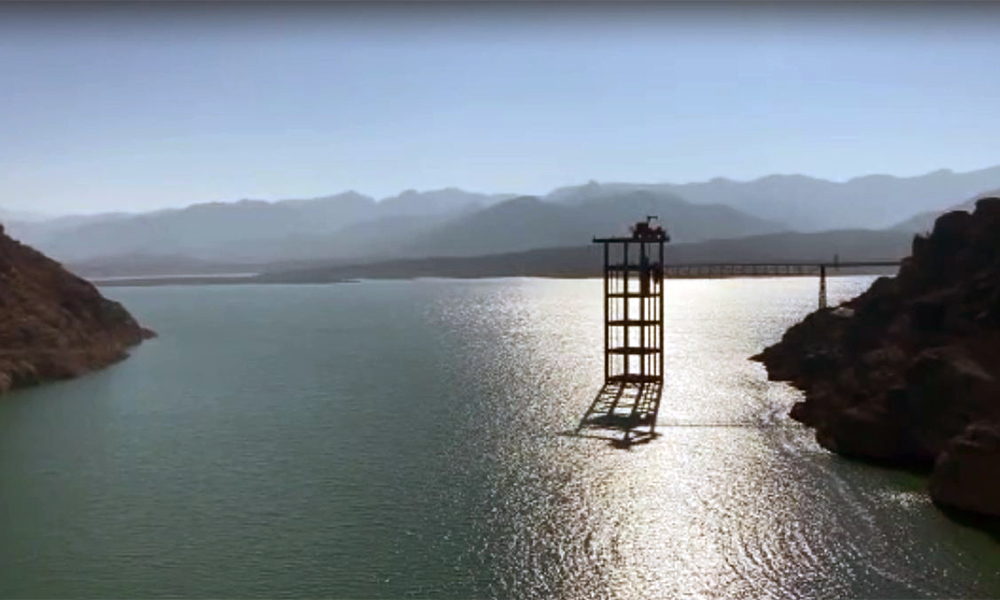
A number of farmers around Kajaki Dam in Helmand province say their agricultural land and gardens are drying up due to the lack of water.
The farmers have called on the government to manage the Helmand River water so that water reaches their fields.
“We are facing a water shortage. We are in dire need of water and we use a water pump. While the water is not enough for us, how can we give water to Iran?” asked Abdul Jabbar, a farmer in Helmand.
“We can give water to Iran only if our water increases or if our dam stores enough water to meet our needs,” Shah Wali, another farmer in Helmand, said.
This comes after Iran’s warnings last month about the lack of water from the Helmand River feeding into Iran. They accused the Islamic Emirate of blocking the water flow and of violating a 1973 water treaty.
The Islamic Emirate has repeatedly said it is committed to the treaty but that there is not enough water to supply Iran.
“According to the 1973 treaty, we have given the Islamic Republic of Iran its share of water from the Helmand River, and we are committed to the treaty in the future. The regular meetings of the commissaries of the Islamic Emirate of Afghanistan and the Islamic Republic of Iran are held as usual. These issues will be discussed in a friendly atmosphere and the normal and abnormal water year will be determined,” Matiullah Abid, the spokesperson of the Ministry of Energy and Water, said.
The complaints of farmers in Helmand province about the lack of water suggest that climate change has had a negative impact on Afghanistan, therefore experts say that it is the responsibility of governments to address people’s concerns by formulating long-term plans.
Latest News
IEA to establish ministry for usurped land reclamation
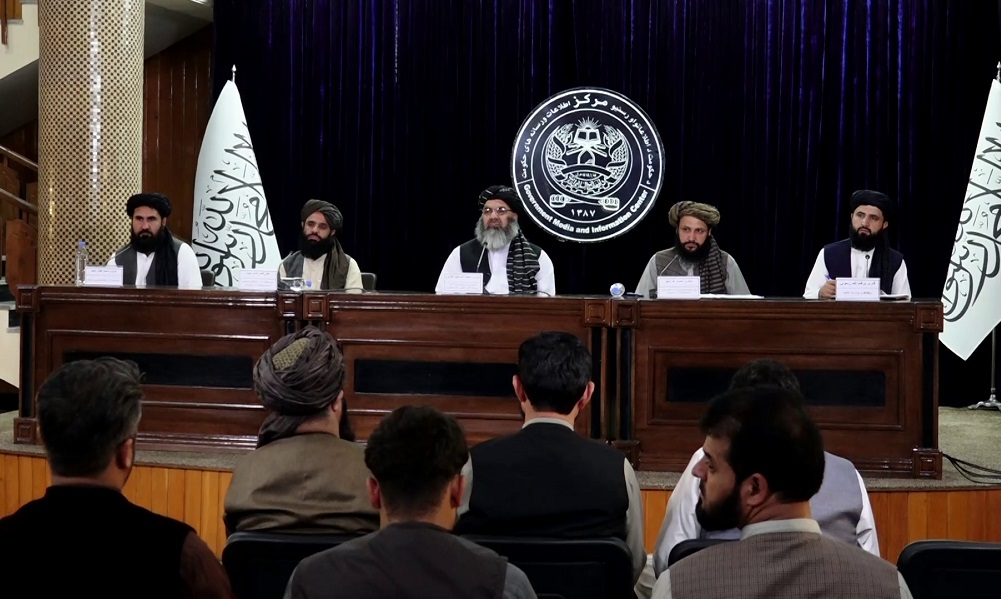
The Ministry of Justice said on Sunday that the Supreme Leader of the Islamic Emirate has issued a decree to establish a new ministry under the name of usurped land reclamation.
Currently, the work of reclamation of usurped land is being carried out by a commission.
The commission said in a press conference that 49.7 million acres of usurped land have been identified across the country, of which 3.9 million acres have been reclaimed.
Officials of the commission stated that 36 residential townships in Kabul have been assessed and decisions have been issued on 13 of them.
According to officials, people who have purchased land in illegal townships have all their rights reserved with the commission and only township owners are considered as usurpers.
They also stated that 370,000 acres of land have been allocated for the Kabul New City project and that currently, four companies are involved in this project.
Latest News
Sirajuddin Haqqani meets with special envoys of China and Pakistan in Kabul
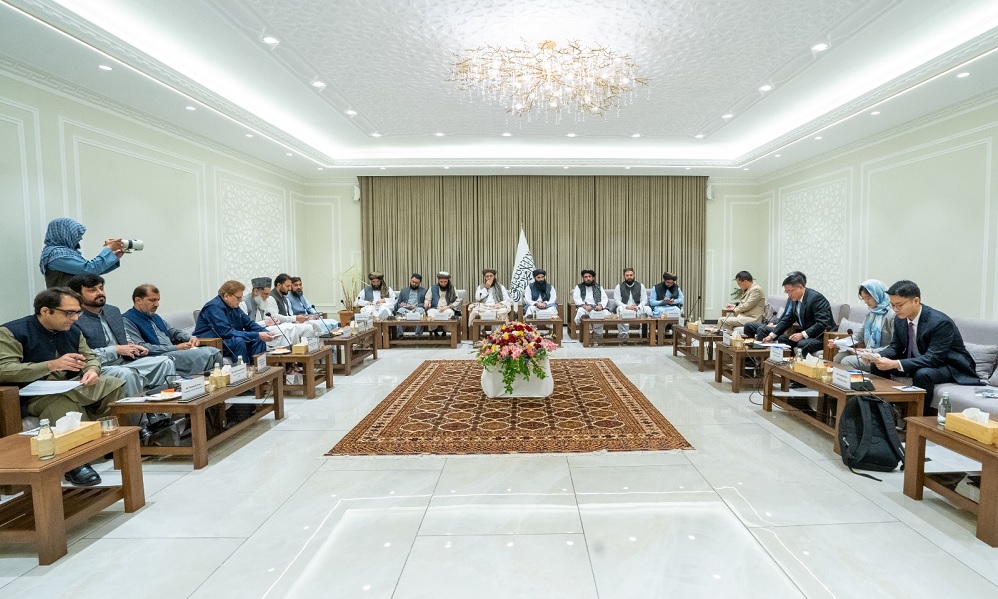
Acting Minister of Interior Sirajuddin Haqqani met with China’s special envoy for Afghanistan, Yue Xiaoyong, and Mohammad Sadiq, Pakistan’s special envoy, to discuss regional cooperation and diplomatic engagement.
According to a statement released by the Ministry of Interior on Sunday, the meeting aimed to follow up on the outcomes of the fifth trilateral meeting of the foreign ministers of Afghanistan, China, and Pakistan. The discussions also focused on preparations for the upcoming sixth round of talks and on deepening political and economic cooperation among the three nations.
During the meeting, Haqqani emphasized the Islamic Emirate’s commitment to fostering strong regional ties. He called for regional understanding and cooperation, especially in political and economic fields, based on mutual respect.
The Chinese and Pakistani diplomats reaffirmed their countries’ commitment to strengthening relations with Afghanistan. They also agreed that the sixth meeting of foreign ministers from the three nations will be held in Kabul.
Latest News
Afghan government employees urged to apply diplomacy when commenting about another country
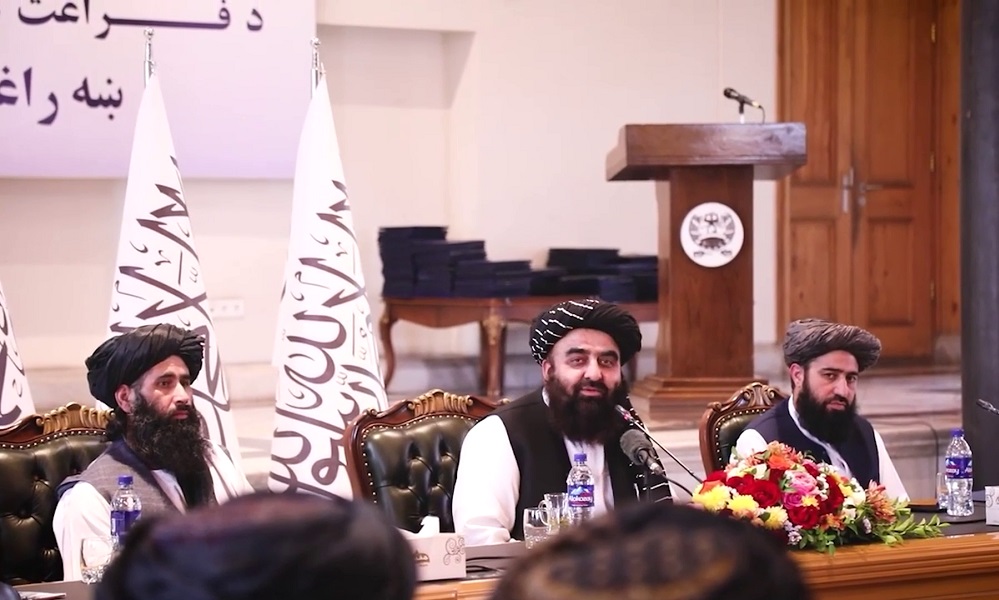
Acting Foreign Minister Amir Khan Muttaqi on Sunday instructed government employees to refrain from making comments or statements that could hurt a country.
Addressing a graduation ceremony of government employees who passed a specialized diplomacy training course, Muttaqi warned that such negative comments would also harm the Islamic Emirate.
“Try to be careful with your pen. Be careful with your tongue so that no Muslim, no neighbor, no country is hurt. Avoid harming the system and yourself. Sometimes, there are shots that then come back to the hitter. You have to be very careful in this matter. Whatever you say, you have to think about whether it is permissible in Islam? Will it not end up harming another Muslim?”
Muttaqi also emphasized that Afghanistan will not progress if fundamental steps are not taken in the academic field.
“If we do not take steps in the academic field, do not educate ourselves, do not work hard, do not know about the world conditions, do not know about the customs of the homeland, do not know about our past history, we cannot build our future. We need a lot of work in our home and each department needs a professional. If you gather all the members of your family, you cannot treat a child with fever until you see a doctor. You cannot build a bulb. You cannot make clothes. Therefore, every field has its own professional and this society needs them,” he said.
Muttaqi also called on the graduates to strive to enhance their knowledge and to guide the future path of Afghanistan towards development.
-

 Regional5 days ago
Regional5 days agoAt least 26 civilians killed in Indian strikes on Pakistan: Islamabad
-
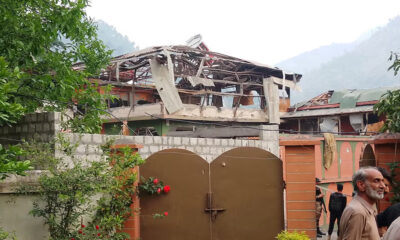
 Regional5 days ago
Regional5 days agoIndia strikes Pakistan over Kashmir tourist killings
-

 Science & Technology5 days ago
Science & Technology5 days agoSkype ends operations after 22 years of service
-

 Latest News5 days ago
Latest News5 days agoIslamic Emirate of Afghanistan ‘concerned’ over rising tensions between Pakistan and India
-
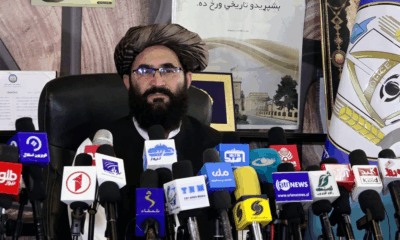
 Latest News4 days ago
Latest News4 days agoPassport Directorate earns nearly 13 billion AFN in one year
-

 World5 days ago
World5 days agoMacron to meet Syrian president on Wednesday, expected to discuss security
-

 Health5 days ago
Health5 days agoWHO confirms second Polio case in Afghanistan
-

 Regional4 days ago
Regional4 days agoIndia dismisses report of Pakistan downing jets as “disinformation”


